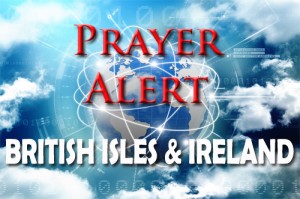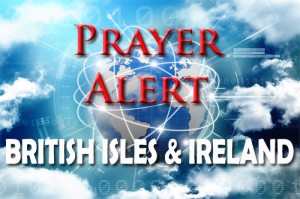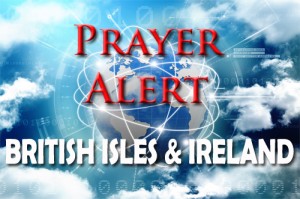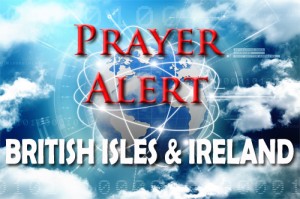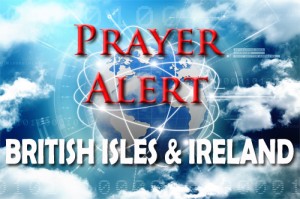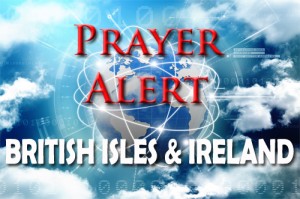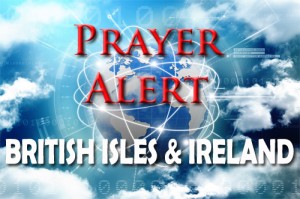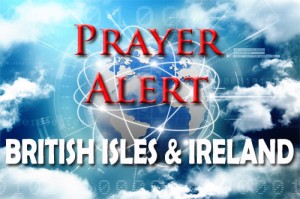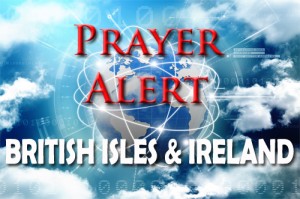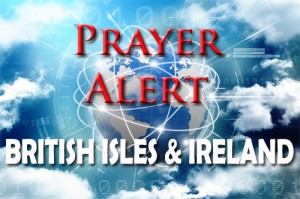Admin 2
Last week Prayer Alert reported: ‘The ‘Yes’ result in the same-sex marriage referendum in the Republic of Ireland has led to calls for its introduction in Northern Ireland.’ On Monday this week Belfast City Council voted in favour of same-sex marriage; 38 councillors voted for, 13 voted against and there were two abstentions. Councillors from Sinn Féin, the SDLP, Green Party, PUP, People Before Profit, and Alliance spoke in support of the motion. All but three Ulster Unionists also voted for the motion. In April, the Northern Ireland Assembly rejected a proposal calling for the introduction of gay marriage, after debating the issue for a fourth time.
Campaigners opposing Scotland’s controversial Named Person scheme launched a new petition last weekend, tapping into mounting opposition to the Children and Young People (Scotland) Act passed at Holyrood last year. Under the law, every child in Scotland will be assigned a state-employed Named Person to monitor their welfare. A campaign spokesman said they were concerned about the threats to the human rights of families to their privacy in their own homes as well as possible breaches of data protection laws as the state passes confidential family information to and from different public bodies. The petition says, ‘I oppose the Scottish Government’s plan to assign a Named Person to every child in Scotland because it undermines families and diverts resources from children who need them.’ In January, judge Lord Pentland dismissed a judicial review brought against the legislation, but three judges will consider an appeal next Wednesday.
Earlier this week, Labour peer Lord Falconer said he would reintroduce a Bill at Westminster attempting to allow assisted suicide for patients in England and Wales who are deemed to have less than six months to live. But in a ballot on Wednesday 27 May determining the order in which private members’ bills are to be introduced in the House of Lords, Lord Falconer's bill came 21st, meaning that it's unlikely that it will be brought before Parliament. Earlier this year politicians on the Isle of Man voted strongly against a private member's bill calling for the legalisation of assisted suicide. The World Medical Association re-asserted its opposition to assisted suicide in 2013. A 2006 survey by the Royal College of Physicians found that over 70% agreed no change in legislation is needed.
More than 20,000 campers and day visitors descended on the Wiston Estate near Steyning, Sussex, for a two-day event over Pentecost weekend. The Big Church Day Out offered families the Big Church Fete where there were fair rides, a climbing wall, arts and crafts and face painting. There were three different stages with a variety of worship styles brought to crowds by artists from the UK and abroad, including Rend Collective; American worship leader and composer Israel Houghton; Martin Smith, formerly the front man of the Christian rock band Delirious?; the Watoto Children’s Choir; and rap and dance group LZ7. There was prayer and more intimate worship in Wiston Church, near the estate’s house. The church was packed throughout both days as people sought some quiet, more reflective worship time. Tearfund ran its ‘Free a Slave’ campaign, and the event ended with a beacon being lit to launch the Diocese of Chichester’s new mission strategy.
A plan has been suggested to enable people who are ill, too nervous to attend church, or who have family commitments on Sundays to take part in church services. It will help mums and dads throughout the country who might have preferred to go to church on Sunday but have sacrificed their spiritual needs to stand in the cold and wet on football and rugby sidelines to support their children's sporting endeavours. They will now be able to stay in touch with their church community while continuing to support their children's Sunday morning activities. Many clergy and parochial church councils impose strict controls over taking photographs or videos at services, including weddings. But the mood against media is undergoing a profound shift with the nation's young people growing up digitally literate from early childhood. The sacred can be found in the social as well as in the sanctuary. See THE MILL GATHERING:
‘In every free democratic society there are limits placed on human freedom in order to protect the common good and vulnerable people. It is right that the law is not to be changed to accommodate the wishes of a small number of desperate and determined people at the expense of the rights of others.’ These were the comments of Dr Gordon Macdonald after a bill proposing to introduce assisted suicide was defeated on its first reading at Holyrood last Wednesday. He added, ‘Legal and medical experts consistently warned that the proposed Bill was deeply flawed and would be difficult to enforce in practice. We thank God that the Scottish Parliament rejected this dangerous legislation and voted in favour of protecting the lives of thousands of vulnerable people.’ See article 4 below.
Yesterday Queen Elizabeth set out the Government's plans for a European Union membership referendum as David Cameron faces pressure to explain when it will be held and what changes to the EU he wants before then. Mr Cameron says he would prefer to stay inside a reformed EU but isn't ‘ruling anything out’ if it fails to change. He was re-elected on a pledge to reshape ties with the bloc before allowing Britons to vote on whether to stay or leave. The new government plans to pass a law in its first year that would allow a referendum on the EU to occur by the end of 2017.
On the final day of his tour of both the Irish Republic and Northern Ireland, Prince Charles visited the country's oldest peace and reconciliation centre. Run by Christians, the Corrymeela Centre played a vital role in bringing together people on all sides of the troubles. Speaking at the centre, he said, ‘By our shared wounds and scars we can, I hope, I pray, share healing and a friendship made all the stronger for the trials it has overcome. We have all suffered too much, too many people's loved ones have been killed or maimed. Surely it is time, as I said in Sligo two days ago, that we became the subjects of our history and not its prisoners. Surely, too, in the roots of Corrymeela, we can discover lessons that can serve as a model to all who strive for peace and reconciliation.’
The ‘Yes’ result in the same-sex marriage referendum in the Republic of Ireland has led to calls for its introduction in Northern Ireland. Patrick Corrigan, of Amnesty International, complained that Northern Ireland is now the one region in the UK and Ireland where gay people are not allowed to get married. Sinn Féin’s Caitríona Ruane said she was part of the campaign in the south and if the north do not legislate for same-sex marriage she has no doubt there will be a legal case on discrimination. Dr Norman Hamilton, former Moderator of the Presbyterian Church in Northern Ireland, said, ‘We regard marriage as being exclusively between a man and a woman. But if there were changes to be made, then I would want to urge that they are made by the legislators rather than by the courts.’ For perspectives to help you pray please read the statement from THE MILL GATHERING at:
Last Thursday the Church of Scotland General Assembly took the first step to extend the provision covering ministers in same-sex civil partnerships to those in same-sex marriages. The final decision has been deferred until its presbyteries have been consulted, so presbyteries will now debate the matter and return their votes by the end of this year. Their decision will then be brought back to the General Assembly. This is a critical time for the Church of Scotland. Please pray.
